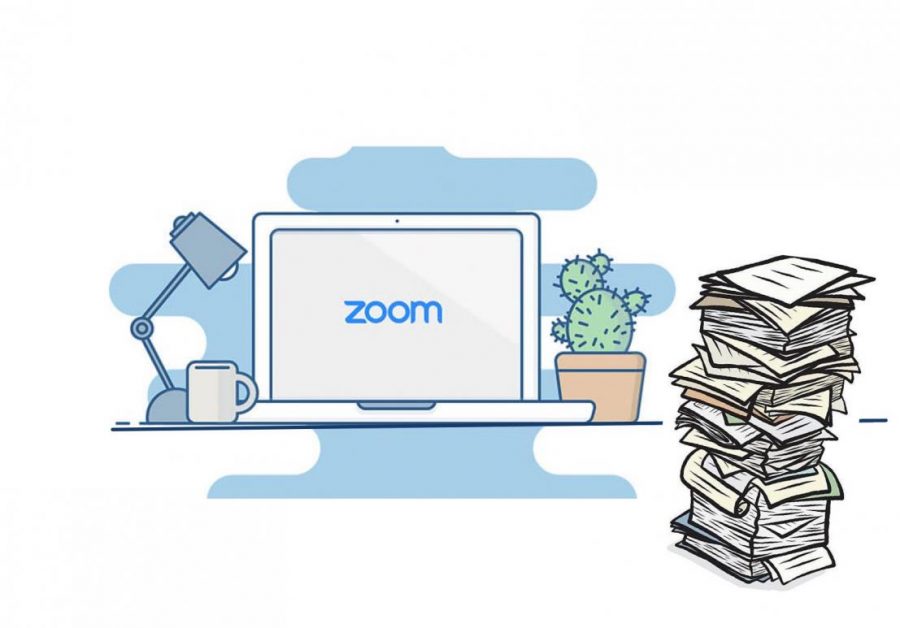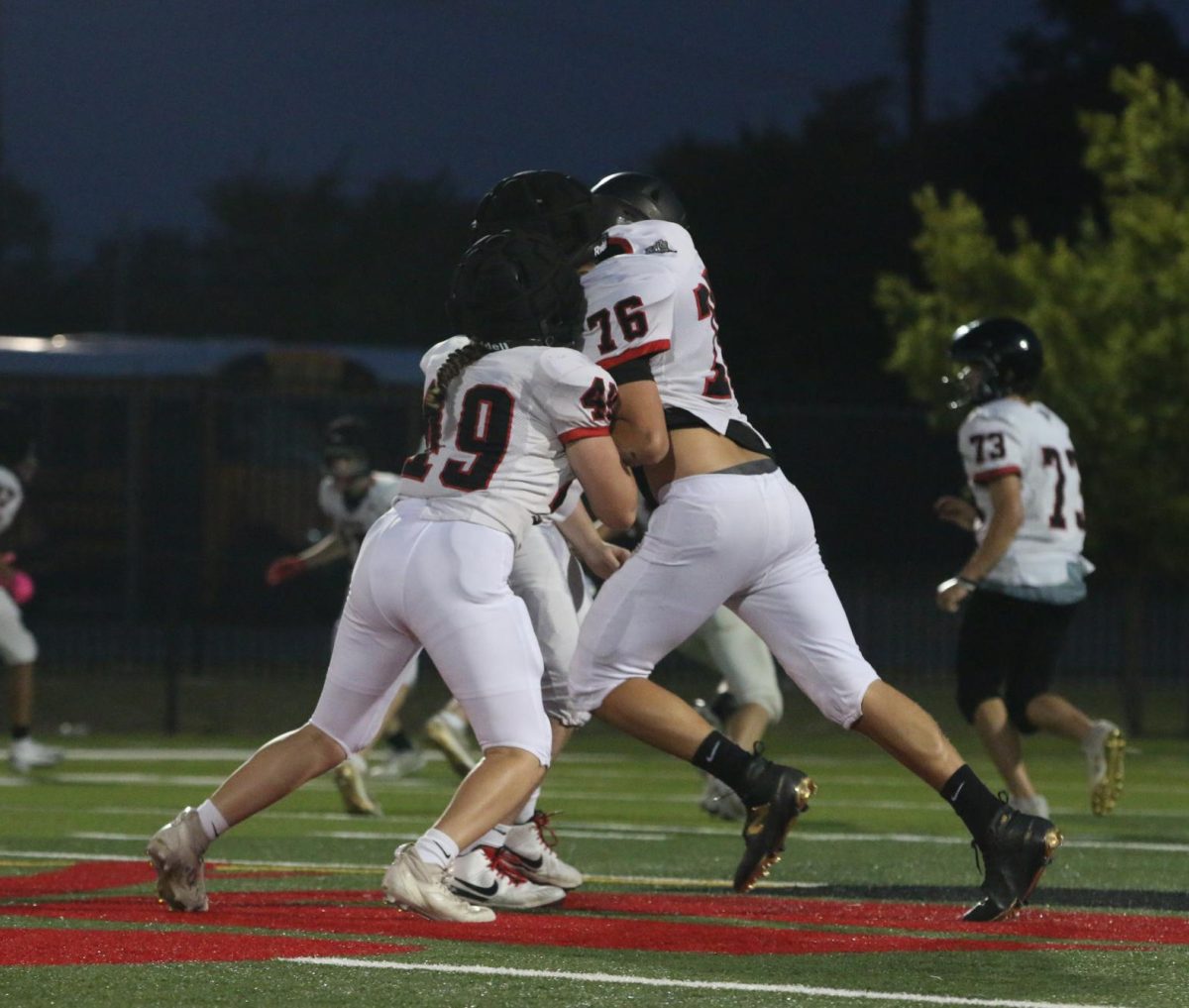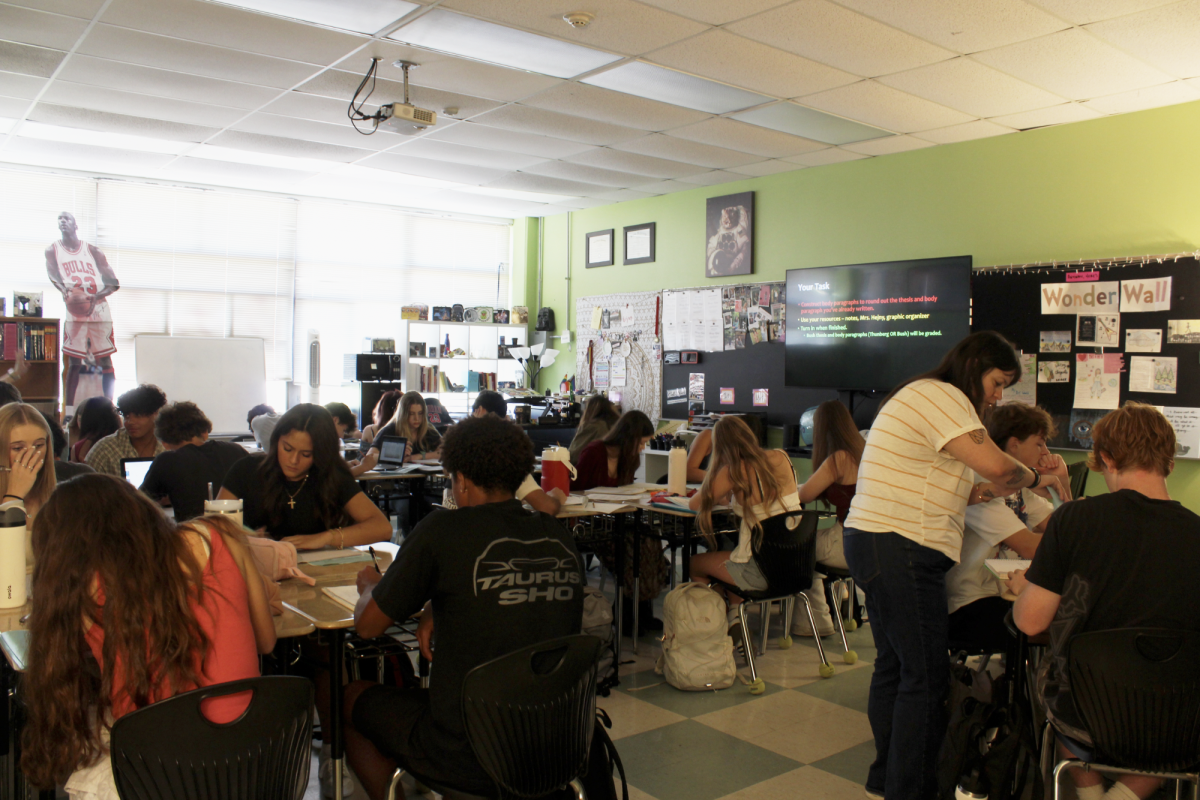Virtual learning is hard
Online learning is harder for many reasons; from missing crucial parts of your learning, to not being able to access your education because of the internet, online learning has been a rough adjustment.
December 22, 2020
Many students have struggled to make the jump from physically being at school to learning virtually. The change in the style of learning now provided has made it harder for many to learn.
The physical distance between students and teachers due to the online learning environment has made it difficult for students to be able to connect with their teachers. When working online it is much harder to show your teachers exactly what you are struggling to learn. This is just one example of how online learning is hard.
A major thing that has changed is the way students are being taught. Many teachers have resorted to giving their students videos to watch instead of instructing them themselves. For many students, this style of teaching has not been effective.
Many students have struggled to grasp certain concepts. According to KVUE-TV, about 11,700 Austin ISD students are failing at least one class this year. This is a 70% increase from last year.
When students are physically present in front of a teacher, the teacher has the opportunity to make sure each student is getting the specific help that they need. Students are able to ask questions as they arise and teachers can give immediate answers.
Asking questions is the best way to learn, although it is very difficult to do online. A big issue, especially with some students returning to school, is the availability of the teacher. It is harder for teachers to balance between students online and in school.
Another recurring issue of online schooling is having to rely on the internet. On September 11, many students across AISD experienced a wifi outage that prevented them from being able to access their classes or assignments. This outage kept many from an entire day of educational instruction.
Online school has brought an increase in assignments from teachers. At school, we are given assignments and have entire class periods that are solely focused on getting our work done with the assistance and input from the teacher. At home, we are expected to be self-directed.
Being at home there is an increased amount of distractions and opportunities to lose focus on the work given. The distractions arise because of the amount of time we spend on asynchronous learning. At school, 100% of the day is synchronous learning.
Although some might say online schooling is easier because you are able to work at your own pace and you choose when to complete assignments. I believe that these things ultimately result in procrastination and turning assignments in late.
To prevent things like that the best solution is to complete your assignments immediately. It is much harder to do all of your forgotten assignments at once. It is also important to stay organized by having an agenda or a calendar where you can write your assignments and their due dates.
Online learning is harder for many reasons; from missing crucial parts of your learning to not being able to access your education because of the internet, online learning has been a rough adjustment.










Maryum • Nov 5, 2024 at 10:25 pm
Virtual learning presents real challenges, from tech issues to lack of personal connection. It’s important to continue finding ways to make online education more accessible and engaging for students and teachers alike.
Edith • Jan 4, 2023 at 2:08 pm
I don’t agree. That’s possibly your experience. I just think is hard because too much work. But its not true about the regular classroom. Studies confirm that most of the time in the regular classroom is wasted in other stuff but learning. Its pretty hard to concentrate in a classroom and many facts. Kids want to interact while school structure requires a timeline and an specific behavior and mind to succeed. The school system hasn’t changed that much since a century. Also ot seems trying to put everyone in the same box when clearly every child is different in many aspects.
queen of donkeys • Sep 27, 2022 at 2:28 pm
that is so true I got a C- in math during distance learning and my parents were outraged because apparently, they believed that since we are ¨glued to our devices¨ it would be effortless but instead it prevented me from learning as much as I would in person and it also shut down my social life.
Ray • May 3, 2021 at 11:10 am
This is another great article I have read on this.
Before COVID-19, the average student’s life consisted of school, work, extracurricular activities and social media. Growing up isn’t just hard; it’s stressful. Our parents have a hard time understanding that. They expected us to be the best students possible, and we don’t want to disappoint them.
We learned to live with the expectation that our parents could not understand the amount of stress we face. So with the pandemic, why did their expectations get higher?
Our parents didn’t grow up in the digital age. They characterize the youth as always being glued to their devices, so according to them, online school should be a breeze. Little do they know the amount of pressure we encounter.
Georgia State did not adequately prepare students to take most of their classes online. Professors are giving more work than they would if classes were face to face. Online school is more than just a huge change; it’s an emotional burden in many students’ lives.
But, of course, when our parents ask, “How’s school going?” we will say, “It’s going great, a little stressful, but I’m making it through.” They’ll respond with a casual reminder that these stressors are normal and that our grades better be good.
Some students don’t dare to admit to their parents that they just don’t have the motivation for school anymore. After all, C’s get degrees, too.
A lot of our parents have forgotten what it’s like to be a student. Some parents live for their college days, still tearing up when they think about their experiences, all the fun they had. We would, too — that is, if we were having fun. Due to COVID-19, we are stuck with nearly empty football stadiums and Zoom sleepover calls with our friends.
It is not the same as it was when our parents were in school; we understand that. Why don’t they?
When the semester first started, many parents were (and still are) against students being on campus during the pandemic. With midterms and registration within arms reach, many students struggle to decide whether it’s time to go back home or stick it out for one more semester.
In a survey I conducted with 62 Georgia State Dining students, I asked, “Do you plan on taking face to face classes, if available, in the spring?” 56 out of the 62 said they would consider.
After reviewing the course schedule for the spring semester, many classes are online or blended. But with the ongoing pandemic and new COVID-19 cases every day, who’s to tell what will happen in the coming months?
Parents need to understand that online school is hard. It has made it so that we are simultaneously always in class, but also never in class. They need to cut us some slack. It’s not easy to teach yourself three to five courses, maintain a 4.0 GPA, keep a healthy mental state, make new friends and adapt to this new normal, which is COVID-19.
I am a freshman, and I’ve been avoiding my family when talking about my grades. Whenever they ask, I would always hit them with the classic, “I’m passing, so don’t worry about it,” because, in high school, they just knew that I was making good grades and balancing every club, class and social event that I had.
My family’s expectations for me when it comes to my school work have always been high. Not to put my business out there, but between me and a couple of my friends who are also freshmen, we were failing at least one class, and our attitude toward that is, “It is what it is, at least I’m trying.”
As college students, we have lowered our expectations regarding what to expect from online learning; it’s time our parents do the same.